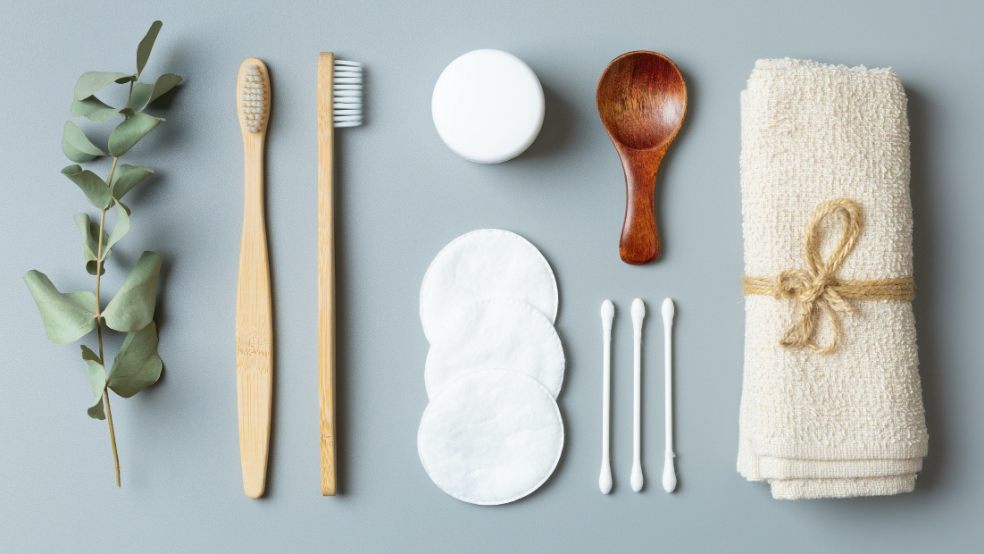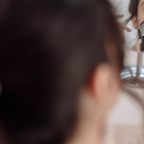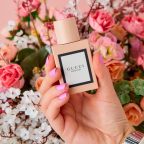
Four ways to cut down plastic waste in your beauty routine
We’re coming up to Plastic Free July (plasticfreejuly.org), an initiative designed to encourage us all to work towards a world where plastic waste is a thing of the past.
The campaign asks people to sign up to a challenge to reduce their plastic consumption during the month, be it commit to cutting down single-use plastic items, target takeaway items like carrier bags, straws, bottles and coffee cups, or go plastic free altogether.
While progress is being made in this area, with many countries banning free carrier bags in shops, for example, there’s still a long way to go if we’re going to tackle the more than eight million metric tons of plastic that end up in our oceans each year, according to NCEAS.
As Plastic Free July reminds us, we can all do our bit to help by examining our buying habits and thinking about how we can eliminate unnecessary waste at home. The bathroom is a good place to start. Beauty products often contain, or come packaged in, single use plastics, but there are lots of sustainable alternatives out there that are just as effective, so why not give one – or more – a go?
Here are four ways to reduce plastic waste in your beauty routine…
1. Try ‘naked’ products
Think your shampoo, soap or shower gel has to be poured out of a plastic bottle? Think again. ‘Naked’ – or packaging-free – cosmetics can be just as effective at cleansing without the need for a bottle, just add water to lather up.
“Shampoo bars are a fantastic and easy way to start reducing your plastic usage,” says Rowena Bird, Lush co-founder and product inventor. “One Lush Shampoo Bar is the equivalent of three 250ml plastic bottles of shampoo, and lasts up to 85 washes.”
Over the last 14 years, Lush has sold 41.3 million solid shampoo bars globally, saving 124 million plastic bottles, equal to 3,100 tonnes of plastic.
2. Opt for refillable products
“While loads of brands tell you their products are ‘100% recyclable’, that doesn’t take into account that only 9% of plastics are successfully recycled globally,” says Nick Torday, co-founder of Bower Collective, which sells reusable dispensers and refill packs of body wash, hand wash, shampoo and conditioner. “That’s why reuse is so critical in our battle against the major environmental crisis that is plastic waste.”
How do Bower Collective refillables work? “It’s simple: you buy a reusable dispenser or use one you already have at home, and select the product refill pouch you want to fill it up with.
“Once the pouch is empty, collect it along with other empty pouches, pop them in a pre-paid returns envelope and stick them in your nearest postbox. The brand will then collect, sterilise and reuse the packaging.
“Our data shows that if you switch to our reusable and plastic-free household products, you could eliminate 84kg of plastic waste coming out of your home every year.”
3. Buy plastic free alternatives
It’s not just plastic bottles, tubes and tubs we need to cut down on – don’t forget beauty essentials like brushes.
“Plastic hairbrushes, make-up brushes and toothbrushes are all contributing to the plastics crisis we are facing – 111 million plastic toothbrushes are thrown into landfill sites every year,” says Joanne Maclachlan, founder of The Eco Friendly Living Co. “But there is a sustainable alternative – bamboo. Bamboo toothbrushes are toxin free, vegan, eco-friendly, sustainable and come with soft bristles.
“The bamboo is 100% sustainable and can be thrown straight on a compost heap, just snip the soft nylon bristles off first and they can also be recycled in a normal recycling bin.”
4. Use reusable face pads
“If you’re guilty of reaching for make-up removing wipes every night, now is the time to save your skin and the planet,” says Maclachlan. “Not only do these wipes contain lots of chemicals that can irritate, dry out and even age your skin, they are having a devastating impact on the environment – blocking up sewers, lining beaches and ending up in the sea.”
There are a variety of reusable face pads available, made from materials like cotton or bamboo fibre. “They are kinder to your skin and won’t contribute to the world’s mounting plastic problem,” says Maclachlan. “Just use, rinse and throw them in the wash. By switching to reusable pads, not only will your skin thank you, but you could save around £50 per year.”
Image: Getty Images/iStockphoto













